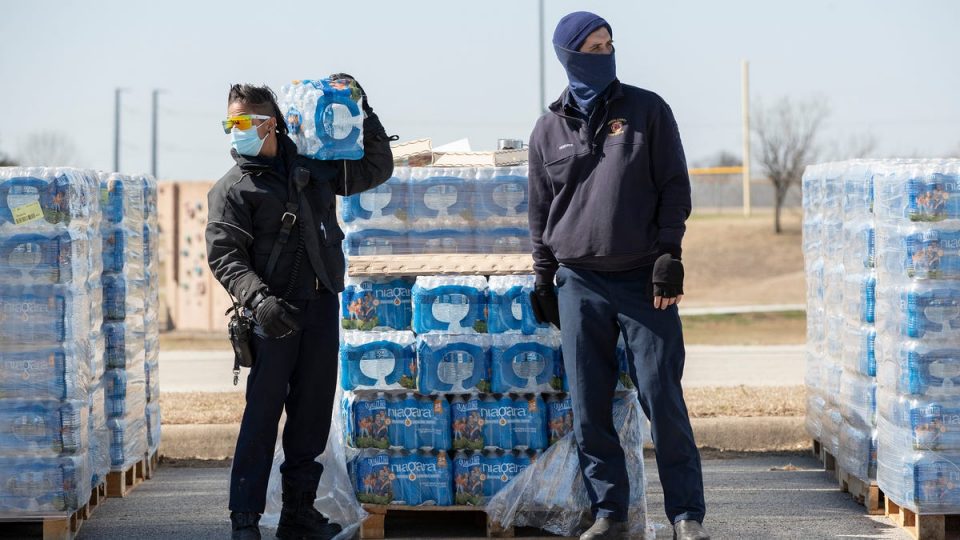As Austin Water attempts to rebuild community trust after the third citywide boil water notice in four years, the 1,300-employee operation is dealing with internal problems exacerbated by an exodus of seasoned workers.
In his latest effort to explain the human errors that led to this month’s 75-hour boil water notice, Austin Water Director Greg Meszaros spoke Tuesday to the Austin City Council about broader cultural issues in the department and at the Ullrich Water Treatment Plant.
On the morning of Feb. 5, a three-person crew at the Ullrich treatment plant failed to stop the processing of water after samples tested beyond regulatory limits for turbidity, or cloudiness, Meszaros said. The water made it into the city’s drinking supply, prompting Meszaros, in consultation with officials from the Texas Commission on Environmental Quality, to issue the boil water notice that evening.
Those three employees have been suspended pending the outcome of a review into their performance. There is no evidence suggesting they were asleep or otherwise ignoring their duties, Meszaros said.
More: Austin Water director Greg Meszaros steps down; gives more info on issue at treatment plant
More: Austin lifts boil water notice; questions remain about what led to problems
Meszaros, the utility’s director since 2007, announced his resignation Friday, but he has yet to leave. The two other boil water notices under his watch were in 2018, when heavy rainfall caused the Colorado River to fill with dirt and debris, and in 2021, when subfreezing temperatures during the February Texas freeze led to a drop in water pressure. Austin Water was among nearly 2,000 utilities to issue a boil water notice.
During the winter storms, Ullrich, the largest of the utility’s three treatment plants, lost power after fallen tree limbs knocked out two feeder wires to the on-site electric substation that powers the plant.
No one capable of operating a 52-year-old backup power switch got to the plant until roughly 1 hour and 25 minutes later.
Power was restored 2 hours and 25 minutes after the initial outage, but the water treatment plant did not return to full operations for more than 10 hours. During that time, tens of thousands of Austinites lost access to running water, and St. David’s South Austin Medical Center was forced to evacuate some patients due to the loss of water service.
Struggles at Ullrich water plant
“The Ullrich plant is struggling the most,” Meszaros said. “We’ve been putting a lot of energy into it in terms of new staff and new management and additional management. But we’re not there yet.”
Meszaros spoke of what he called “enormous” turnover at Austin Water, including 20 employees who left in January, the most ever in a given month. He lamented an absence of longtime operators with decades of experience, saying, “Those days are gone.” The identities and experience levels of the three suspended employees have not been revealed publicly.
“Our experience is being diluted,” Meszaros said.
One year later: How the Texas freeze changed us — and Texas
The American-Statesman sent an email to Austin Water on Tuesday seeking the current number of vacancies at the utility. Officials said there are 138 vacancies, roughly 11% of all budgeted positions.
Meszaros made Tuesday’s remarks to the City Council after it invited him and other Austin Water executives to answer prepared questions. Due to time constraints, many of the questions were not answered Tuesday, but could come up Thursday when the council meets again.
Mayor Steve Adler asked about commonalities between the boil water notices, eliciting the response from Meszaros about Austin Water’s staffing and culture issues.
The session was congenial, with council members thanking Meszaros for his service, and with Meszaros breaking into tears in his response to them. He revealed that he will recommend a bill credit for customers, due to guidance from Austin Water to flush pipes prior to consuming water after the notice was lifted. Any credit would have to be approved by the council.
An internal review into the recent problem is underway. On Thursday, the City Council is expected to authorize a second review, to be conducted by an outside party.
What went wrong with Austin’s boil water notice?
Tuesday’s meeting yielded additional details on the recent Ullrich problem, expanding on a memo Meszaros released on Friday.
Rick Coronado, Austin Water’s assistant director of operations, said filters designed to stop the flow of bad water were initially effective before solid material designed to treat the water broke through. He said alarms are to go off signaling a filter failure and that he has no reason to believe that did not happen.
That water moved to an underground storage tank, and, then, into the distribution system.
Meszaros said the crews could have stopped the processing long before it made it that far.
“We don’t entirely understand why some of that wasn’t done, or at least why there wasn’t more of a call for help,” he said.
He also spoke of a communication failure by that crew to another crew that arrived to replace them on Saturday morning.
The issue began Feb. 4, the day before the turbidity spike, when crews were working to bring a basin online. As part of that process, a high turbidity mixture of water and calcium carbonate is added to the basin to soften lime. That should have stopped after a couple of hours, Meszaros said, but instead it continued for most of the night.
After Tuesday’s meeting, Austin Water said it has taken steps to increase system redundancies that include increasing the frequency of turbidity audible alarms, automatic notification of supervisors for turbidity exceedances, and allowing remote access to monitoring systems for supervisors.


